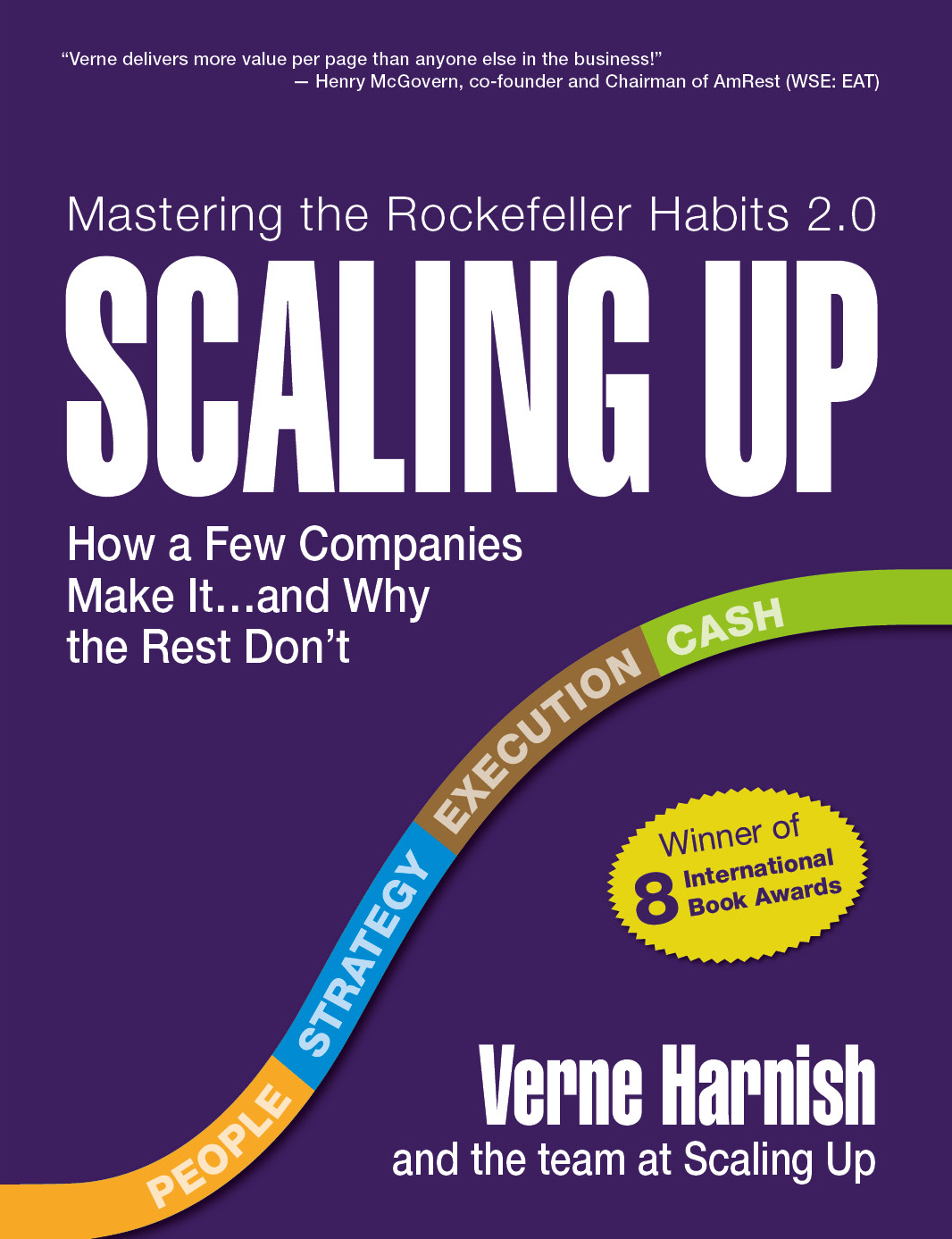Scaling Up and EOS Traction are two distinct frameworks designed to help businesses grow and achieve their strategic objectives. While both systems aim to streamline operations, enhance team performance, and create focus and accountability, they have different approaches and methodologies.
Scaling Up, based on Verne Harnish's book "Scaling Up: How a Few Companies Make It...and Why the Rest Don't," emphasizes the Four Decisions framework, which focuses on People, Strategy, Execution, and Cash. It provides a comprehensive set of tools and best practices for managing these four key areas of business, including the One-Page Strategic Plan, Rockefeller Habits Checklist, and regular meeting rhythms. Scaling Up aims to help organizations optimize their growth potential by mastering these critical aspects of their operations, creating a strong foundation for sustainable growth and success.
EOS Traction, developed by Gino Wickman (inspired by Verne Harnish) and described in his book "Traction: Get a Grip on Your Business," is an Entrepreneurial Operating System designed to help small to medium-sized businesses achieve clarity, focus, and alignment. The EOS framework consists of Six Key Components: Vision, People, Data, Issues, Process, and Traction. It introduces tools such as the Vision/Traction Organizer (V/TO), Rocks, and Level 10 Meetings to help businesses simplify and systematize their operations, ensuring everyone is working toward the same goals. EOS Traction emphasizes the importance of defining clear roles, setting measurable objectives, and creating a culture of accountability to drive growth and success.
While both Scaling Up and EOS Traction offer valuable methodologies for business growth and improvement, they differ in their focus, tools, and target audience. Choosing between the two depends on your organization's specific needs, goals, and stage of development.
While it's important to note that the suitability of a framework depends on an organization's specific needs and circumstances, there are several reasons why some businesses might find Scaling Up to be a better fit:
Holistic approach: Scaling Up provides a comprehensive framework that addresses the four critical aspects of business growth: People, Strategy, Execution, and Cash. This holistic approach ensures that all aspects of the organization are considered, leading to a well-rounded and balanced growth strategy.
Flexibility: Scaling Up offers a wide range of tools and best practices that can be customized to fit the unique needs and challenges of each organization. This flexibility allows businesses to tailor the framework to their specific situation and stage of development, making it adaptable to various industries and growth stages.
Focus on growth: As the name suggests, Scaling Up is designed specifically for businesses that are looking to scale their operations and achieve rapid growth. The framework provides guidance and tools to help organizations identify opportunities for expansion, build a strong foundation for growth, and manage the challenges that come with scaling.
Emphasis on learning: Scaling Up encourages organizations to adopt a learning mindset, continuously improving their processes and operations through regular reflection, feedback, and adjustment. This focus on learning and adaptation fosters a culture of innovation and resilience, which is critical for businesses looking to grow and thrive in a competitive marketplace.
Global network: Scaling Up has a worldwide community of coaches, consultants, and practitioners who can provide valuable support, guidance, and expertise to help organizations successfully implement the framework. This network can be a valuable resource for businesses looking to tap into the collective wisdom and experience of the Scaling Up community.
However, it's important to remember that the best framework for your organization depends on your specific needs, goals, and circumstances. While some businesses might find Scaling Up to be a better fit, others may prefer the simplicity and focus of EOS Traction or another growth framework. Ultimately, the most effective framework is the one that aligns with your organization's values, priorities, and objectives.
Read this if you are considering an EOS Traction alternative.

